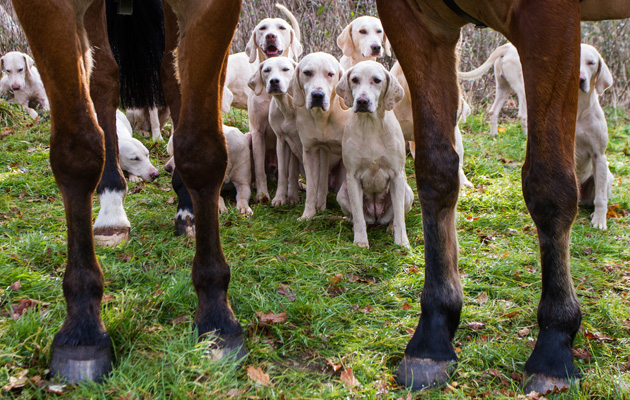Opinion
Hunting is at a crossroads, one of many it has encountered in its 1,000-year history. Wars, roads, railways, wire, disease, politics and urbanisation are just a few things that have been hailed by some as “the beginning of the end” for hunting.
Yet despite seemingly impossible odds, there are more hunts registered with the Masters of Foxhounds Association (MFHA) today than there were 100 years ago. To assume that this statistic paints a picture of long-term sustainability, though, is to avoid quite a large elephant in quite a small room.
Hunting is remarkably durable, but it has never witnessed the current level of complication and, let’s face it, pressure. This is not unique to hunting by the way. Lots of voluntary groups, dependent on community goodwill, are struggling with the increasing demands of 21st century life. Add to this the complex legalities around hunting, the never-ending media fascination and a bit of politics, and this pressure multiplies.
Despite all this, there remains something indefinable, fascinating, mesmerising and alluring about hunting that, if you have experienced it, has no equal. Such is its magic that it is still a subject of art, poetry, literature, hostility and debate. Is there anyone out there who doesn’t have a view about it? It’s dangerous, edgy, inclusive and exclusive, wildly exciting and, at times, crushingly dull. It attracts the most wonderful and the strangest elements of society. It is a mystery to some, a science to others. If it is in your blood, then nothing, just nothing, will get in the way — not money, children, work or religion. If it is not, then almost nothing will convince you of its merits.
The dilemma
So the dilemma is this: how can we sustain this uniquely British institution? In moments of honest self-assessment, most serious hunting people, including chairman of the MFHA Lord Mancroft, agree that there is too much hunting for the available land mass at our disposal.
At the MFHA AGM earlier this year, he made the case for reform of the infrastructure of hunting. Hunts in some areas are finding it harder and harder to provide enough “country” to lay on a day safely — there are 20 packs of foxhounds in Yorkshire and 18 in Devon. Corners get cut and accidents happen, sometimes resulting in the sort of “brand damage” that completely obscures the good that many hunts do in their own communities.
As the costs of running hunts escalate, some hunts are becoming squeezed financially, their kennels age, and staff, who used to number four to six in the old days, are pared back to two or even just one person. Frequently, staff are doing both hounds and horses as well as running the country in place of often-absent masters.
Masters are different beasts, too. These micro-businesses need leaders who can commit great lumps of time and are conversant with exempt hunting and trail hunting, the chemical requirements of artificial scent and licensing conditions of the National Trust. They need to know about hound welfare and the right number of hounds to hunt their country, just as much as the names of the children of their largest landowner. It was John King, chairman of both British Airways and the Belvoir, who said it was easier to find a good Prime Minister than it was a good master, and that was in the 1980s.
Unfolding drama
Having migrated from hunting my own hounds to the political field — the two are remarkably similar — I have a rare vantage point from which to view this unfolding drama.
Of course, I yearn for the old days, but the abolition of the railways and barbed wire are hardly on the government agenda.
Yet we can flourish with inspired leadership and a renewed vigour. Hunting’s youngsters are just as numerous, enthusiastic and engaged as their predecessors.
This is why I am right behind Lord Mancroft’s plans to electrify hunting again, but this will require change. It will mean matching today’s hunting with today’s landscape, shared kennels and overheads, resources, mergers and, yes, even the odd closure of hunts that, through no fault of their own, are simply not sustainable in the 21st century countryside.
It will mean proper regulation which helps hunting and does not unduly restrict it. It means achieving the highest welfare standards for horses, hounds and staff. And it will mean a careful review of our arguments, for that moment when a change in the law may be back on the cards.
If Lord Mancroft, the MFHA and other hunting associations can pull this off, then hunting will have the burst of adrenalin it needs. The jobs of MFH, huntsman and whipper-in will once again attract a long queue of qualified and competent applicants. Kennels will be the envy of the dog world, our arguments respected and our fortunes secured.
Achieve that, and my colleagues and I can deliver calm political seas. Miss the chance, however, and those crossroads will be coming thick and fast.
Ref Horse & Hound; 20 September 2018
